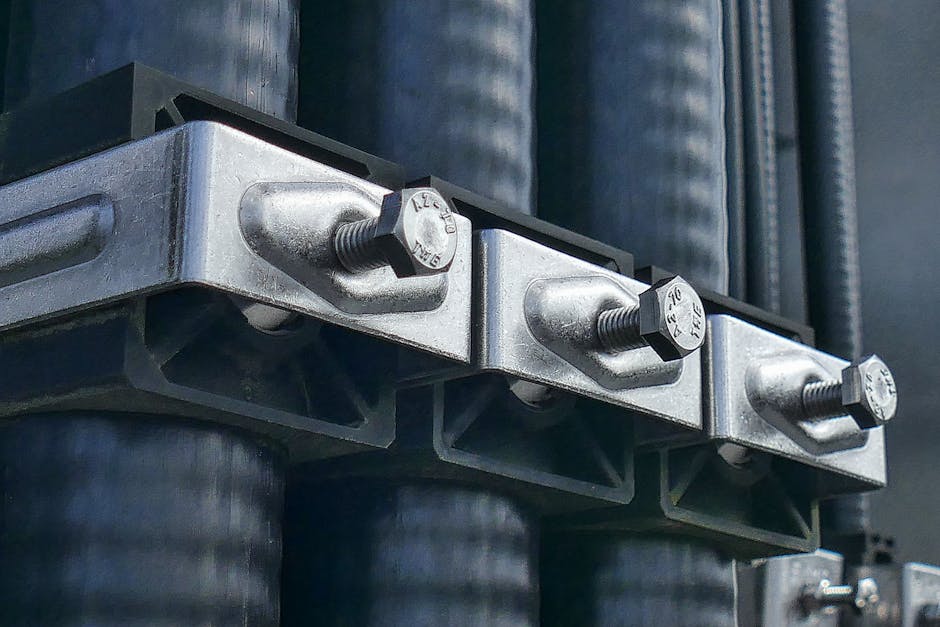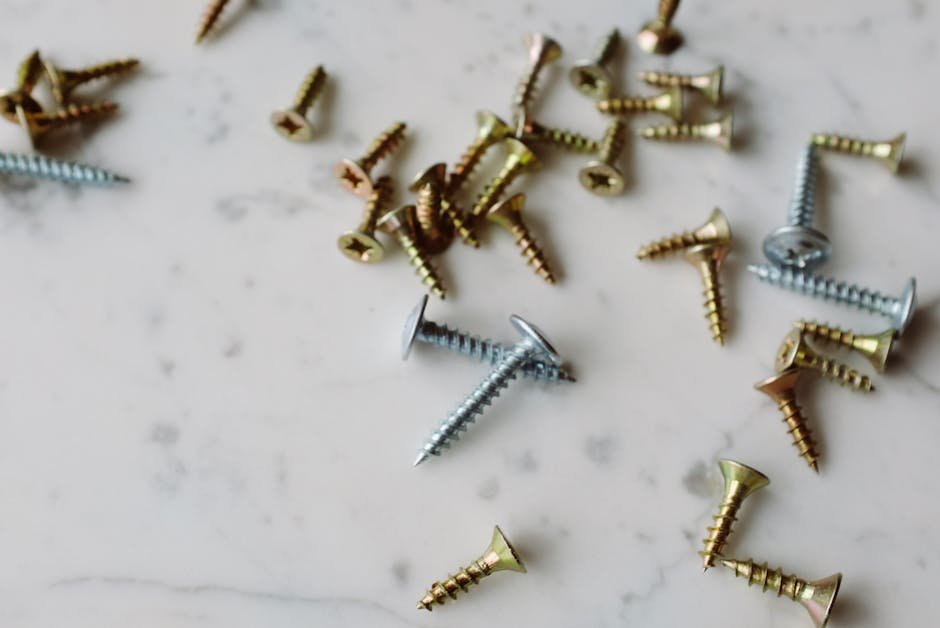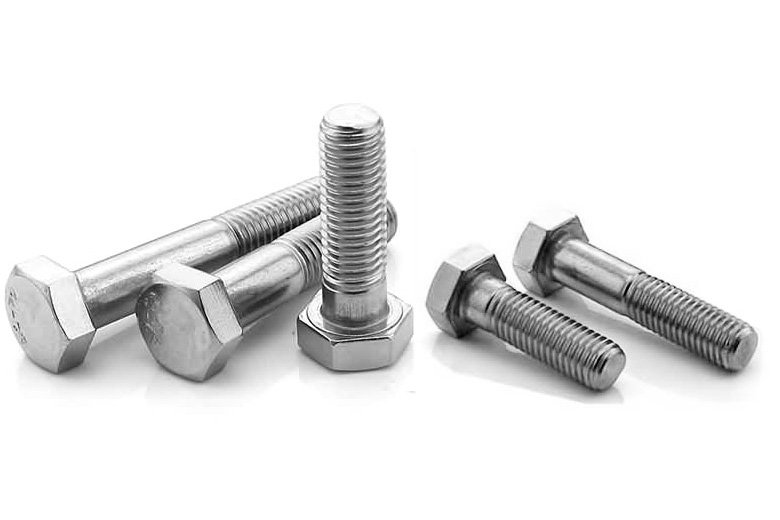Understanding High Strength Screws
High strength screws are not your ordinary fasteners. These are carefully engineered to handle the pressures of modern engineering marvels. They are crafted to provide a robust connection in environments that challenge both material integrity and design. From the dizzying heights of skyscrapers to the deepest mines, these screws hold it all together.
The Role of Yield Strength in High Strength Screws
The concept of yield strength is pivotal when discussing high strength screws. Yield strength is the stress at which a material begins to deform plastically. Beyond this point, the deformation is permanent. This is crucial for high strength screws as it determines their ability to maintain structural integrity under load. While ultimate tensile strength is a measure of the maximum stress a material can withstand while being stretched or pulled, it is the yield strength that often dictates the material’s suitability for a particular application. As the saying goes, “When a strong fastener is not good enough,” you need one with high yield strength to prevent permanent deformation. Metals like alloy steel and advanced alloys outperform polymers in terms of yield strength, making them the material of choice for demanding applications.
Materials Used in High Strength Screws
High strength screws are crafted from a variety of materials, each suited to specific needs:
-
Alloy Steel: Known for its toughness and strength, alloy steel is a popular choice for industrial applications.
-
Stainless Steel: Offers a blend of strength and corrosion resistance, making it ideal for environments exposed to moisture or corrosive elements.
-
Advanced Alloys: Materials like MP35N, 17-4 PH, Inconel 718, and WASPALOY boast extreme strength and resistance to high temperatures and corrosive environments. These are the go-to for applications in aerospace and other high-stress industries.
For more detailed insights on advanced alloys, check out Extreme High Strength Fasteners.
Types of High Strength Screws
When it comes to keeping things together in demanding environments, not all screws are created equal. High strength screws come in a variety of specialized forms, each engineered for specific challenges and materials. Let’s explore the fascinating world of these mighty fasteners that literally hold our industrial world together.
The diversity of high strength fasteners reflects the incredible range of applications they serve. From towering skyscrapers to precision machinery, each type brings unique advantages to the table.
You’ll commonly encounter self-tapping screws when working with thick materials. These clever fasteners create their own pathway as they’re driven in, eliminating the need for pre-drilling in many applications. Their independence makes them particularly valuable in field work where access to drilling equipment might be limited.
Lag screws are the workhorses of wood construction, with their robust design and aggressive threading that bites deep into lumber. Think of these as the heavy lifters of the screw world – when you need serious holding power in wood, these are your go-to fasteners.
For modern construction, structural screws have been revolutionizing how we connect wood elements. These innovative fasteners often replace traditional lag screws, offering easier installation without sacrificing strength. Many contractors have welcomed this advancement with open arms (and less tired wrists from driving in those old-school lags).
In precision metal applications, nothing beats machine screws for their exacting tolerances and reliable performance. These fasteners create the backbone of everything from electronics to heavy machinery, forming metal-to-metal connections you can trust.
When space is tight but strength requirements are high, socket head cap screws shine. Their compact head design allows them to nestle into confined spaces while their robust construction maintains structural integrity. Engineers love them for their combination of strength and space efficiency.
Self-Tapping Screws for Thick Steel
The beauty of self-tapping screws lies in their self-sufficiency. As they rotate into thick steel, these clever fasteners carve out their own threading pattern, creating a secure hold without the extra steps of pre-drilling and tapping.
The coarse thread designs found on quality self-tapping screws serve two important purposes. First, they provide superior grip by maximizing the contact surface between screw and material. Second, they reduce the torque needed during installation, making the process more efficient and less strenuous on both tools and workers.
For environments where moisture or chemicals present challenges, stainless steel self-tapping screws offer an ideal solution. They combine the convenience of self-tapping functionality with exceptional corrosion resistance, ensuring longevity even in harsh conditions.
When installing these specialized fasteners, maintaining the right angle and applying steady pressure makes all the difference between a successful connection and a stripped hole. For deeper insights into selecting and using these versatile fasteners, our guide on self-tapping screws for thick steel provides valuable information for professionals and DIY enthusiasts alike.
Advanced Alloys in High Strength Screws
When ordinary strength just won’t cut it, advanced metallurgy steps in to provide solutions that push the boundaries of what fasteners can achieve. These specialty alloys transform high strength screws from mere connectors to critical engineering components.
MP35N bolts represent the pinnacle of commercial fastener strength, boasting an incredible 294 ksi tensile strength. This nickel-cobalt alloy maintains its integrity in the most demanding applications, from deep-sea oil extraction to aerospace systems where failure simply isn’t an option.
For environments where heat becomes a factor, ASTM A453 Grade 660 bolts prove their worth. With a tensile strength of 120 ksi and exceptional heat resistance, these fasteners maintain their structural properties even when temperatures would compromise standard options. They’re the unsung heroes in power generation facilities and chemical processing plants.
In heavy machinery and automotive applications, Grade 12.9 bolts with their impressive 1200 MPa tensile strength provide the security engineers demand. These high-carbon alloy steel fasteners often secure critical components in engines and industrial equipment where vibration and constant stress are everyday challenges.

The world of advanced alloy fasteners continues to evolve as materials science progresses, offering ever-stronger and more specialized solutions for the most challenging connection problems. When your application pushes the limits of conventional fasteners, these extraordinary alloys provide peace of mind through their exceptional performance characteristics.
Applications of High Strength Screws
When it comes to keeping our world securely fastened, high strength screws truly shine in the most demanding environments. These mighty fasteners aren’t just sitting on hardware store shelves waiting for weekend projects—they’re hard at work in some of the most challenging industries on the planet.
In the aerospace industry, every gram matters while safety remains paramount. Here, engineers rely on specialized high-strength fasteners that offer the perfect balance of lightweight design and incredible tensile strength. These screws help keep aircraft aloft through thousands of flight cycles, withstanding extreme temperature variations and constant vibration.
Down below the earth’s surface, the mining industry presents a completely different set of challenges. Mining equipment operates in punishing conditions where ordinary fasteners would quickly fail. High strength screws provide the necessary durability to withstand constant impact, abrasive particles, and the crushing pressure of underground operations.
Similarly, in the oil and gas sector, fasteners must perform reliably in environments that would destroy standard hardware. From offshore platforms battling saltwater corrosion to deep-well equipment facing extreme heat and pressure, specially formulated alloy screws maintain their integrity where others would literally buckle under pressure.

Not all applications are so exotic, however. In construction, high strength screws create remarkably solid wood-to-wood connections that outperform traditional fastening methods. Modern structural screws have revolutionized timber frame construction, providing joints that can withstand decades of structural loading and environmental stresses.
For heavy load-bearing structures like bridges and commercial buildings, engineers specify high-performance fasteners that won’t compromise over time. These screws maintain their holding power through seasonal temperature changes, structural settling, and even seismic events.
Perhaps most impressive are the specialized alloy screws designed for high-temperature environments. While standard steel fasteners would weaken or even melt, advanced alloy high strength screws maintain their structural integrity in furnaces, engine compartments, and industrial processes where temperatures would render ordinary hardware useless.
At Auxbolts, we understand that each of these applications demands not just strength, but the right combination of material properties, coating technologies, and precision engineering. That’s why we’ve spent 16 years perfecting our manufacturing processes to deliver fasteners that don’t just meet specifications on paper—they perform reliably in the real world, where failure simply isn’t an option.
Choosing the Right High Strength Screw
Finding the perfect high strength screw for your project doesn’t need to feel like searching for a needle in a hardware store. With a little knowledge, you can make confident decisions that ensure your connections stay secure for years to come.
When selecting your fastener, start by considering the material. Different environments demand different solutions – a screw that works perfectly in a dry indoor setting might quickly fail when exposed to saltwater or chemicals. The material you choose should match both your budget and performance needs.
Corrosion resistance is another crucial factor. Nothing undermines a strong connection faster than rust! For outdoor applications or environments with moisture, humidity, or chemical exposure, investing in corrosion-resistant screws pays dividends in longevity. Stainless steel options provide excellent resistance without sacrificing strength.
Don’t forget about temperature considerations. If your project involves heat – whether it’s a high-temperature industrial setting or simply exposure to direct sunlight – you’ll need to account for how heat affects your fasteners. Standard screws might weaken or expand in high-heat situations, while specialized materials like Inconel or WASPALOY maintain their integrity even in extreme temperatures.
Finally, think about your application-specific requirements. Are you joining wood to concrete? Metal to metal? Will the connection bear significant weight or vibration? The answers to these questions will guide you toward the ideal choice, whether that’s a structural screw, machine screw, or one of the many other specialized options available.
Installation Tips for High Strength Screws
Even the strongest screw won’t perform as intended if installed incorrectly. Following proper installation techniques ensures you get the full benefit of your high strength screws.
Begin with the right tools. Using proper equipment isn’t just about convenience – it directly affects the integrity of your connection. Power drills with adjustable torque settings allow precise control, preventing over-tightening that can damage both the screw and the material.
Creating pilot holes might seem like an extra step, but it’s often essential for high strength screws. A properly sized pilot hole reduces the force needed for installation, prevents splitting in wood applications, and ensures your screw drives in straight. Think of it as creating a path of least resistance for your fastener to follow.
Torque control deserves special attention. Tightening a screw seems straightforward, but finding that sweet spot – tight enough to secure but not so tight that you strip the threads – takes practice. When working with critical connections, consider using a torque wrench to achieve manufacturer-specified tightness.
Proper alignment might be the most overlooked aspect of installation. A screw driven at an angle can create a weak point in your connection and may even fail prematurely. Take the extra few seconds to ensure your screw enters perpendicular to the surface for maximum strength.
Before considering the job complete, perform a quick quality check. Look for signs of improper installation like protruding heads, visible gaps, or screws that don’t sit flush. These visual cues often indicate issues that should be addressed before they become problems.
The few extra minutes spent on proper installation will save hours of frustration and potential failure down the road. Your project deserves the security that properly installed high strength screws provide.
Frequently Asked Questions about High Strength Screws
What materials are commonly used in high strength screws?
When it comes to high strength screws, material selection is crucial to their performance. Alloy steel remains the workhorse of the industry, offering exceptional strength at a reasonable cost. Many of our customers at Auxbolts start with alloy steel options for their standard industrial applications.
Stainless steel takes things up a notch by adding corrosion resistance to the equation. This makes it perfect for outdoor installations or environments with moisture exposure. I’ve seen stainless steel screws hold up beautifully after years in coastal environments where regular steel would have long since surrendered to rust.
For truly demanding applications, advanced alloys become necessary. Materials like MP35N can achieve tensile strengths up to 294 ksi – that’s stronger than most people can imagine! Inconel 718 and WASPALOY similarly offer extraordinary performance under extreme conditions. These premium materials might cost more upfront, but they often prove more economical in the long run by preventing costly failures and replacements.
How does temperature affect the performance of high strength screws?
Temperature is the hidden factor many people overlook when selecting high strength screws. Think of it as a material’s kryptonite – even the strongest fasteners have their limits when heat enters the equation.
Most standard screws begin to lose their mechanical properties at liftd temperatures. Their yield strength decreases, making them more susceptible to deformation under load. At extremely high temperatures, some materials can become brittle and fail catastrophically – definitely not what you want in critical applications!
Specialized alloys like Inconel and WASPALOY were developed specifically to maintain their integrity at temperatures that would render ordinary fasteners useless. These materials can operate reliably in environments exceeding 1000°F (538°C), making them ideal for applications in jet engines, industrial furnaces, and other high-heat scenarios.
On the cold side, some materials become brittle in sub-zero temperatures. This is particularly important for applications in northern climates or refrigeration systems. Always check the low-temperature ratings if your fasteners will be exposed to extreme cold.
What factors should I consider when selecting a high strength screw?
Selecting the right high strength screw involves balancing several key considerations. First, understand your load requirements – both the weight and type of force the screw will bear. Shear forces (sideways pressure) affect screws differently than tensile forces (pulling apart).
Environmental exposure is equally important. Will your fasteners face moisture, salt spray, chemicals, or extreme temperatures? The most impressive strength ratings mean little if your screw corrodes through in six months. At Auxbolts, we often recommend our corrosion-resistant options for outdoor and marine applications.
The specific application requirements matter tremendously. For instance, vibration-prone environments might benefit from screws with specialized thread designs to prevent loosening. Similarly, applications requiring frequent disassembly and reassembly need screws that can withstand repeated torquing.
Consider also the materials being joined. Different substrates require different fastener types – what works perfectly in steel might be completely wrong for composites or wood. The thickness and hardness of these materials will influence your choice as well.
Finally, don’t overlook installation factors. Will you have access to both sides of the joint? Do you need specialized tools? Sometimes the technically “strongest” option isn’t practical if it can’t be properly installed in your specific situation.
By carefully weighing these factors, you’ll find the sweet spot between performance, longevity, and cost-effectiveness – the hallmark of intelligent fastener selection.
Conclusion
When it comes to keeping our modern world firmly fastened together, high strength screws play an indispensable role that’s often overlooked. Throughout this guide, we’ve explored the remarkable engineering behind these small but mighty fasteners that hold everything from skyscrapers to mining equipment securely in place.
We’ve finded that the true measure of a screw’s worth lies not just in its ultimate tensile strength, but in its yield strength—that critical point where temporary stress becomes permanent deformation. This knowledge helps engineers and builders select the perfect fastener for each unique application.
From the robust reliability of alloy steel to the corrosion-fighting power of stainless steel, and the exceptional performance of advanced alloys like MP35N and Inconel 718, the materials used in high strength screws determine their suitability for various challenging environments.
The diverse family of high strength screws—self-tappers for thick steel, structural screws for heavy wood connections, socket head cap screws for tight spaces—offers solutions for virtually any industrial need. Each type brings its own strengths to the table, quite literally supporting the infrastructure we rely on daily.
Proper selection and installation remain crucial factors in achieving optimal performance. By considering material properties, environmental conditions, and application-specific requirements, you ensure that your fastening solution stands the test of time and stress.
At Auxbolts, we’ve spent 16 years perfecting the art and science of fastener manufacturing. Our team understands that the smallest components often bear the greatest responsibility in your projects. That’s why we’re committed to precision engineering and superior corrosion resistance in every bolt, screw, and nut we produce.
Whether your industry demands fasteners that can withstand extreme temperatures, heavy loads, or corrosive environments, we’re here to provide customized solutions that meet your exact specifications. For more information on our high-quality bolts and how they can strengthen your next project, visit our stainless steel bolt page.
In a world of increasing complexity and demanding applications, choosing the right high strength screw isn’t just about holding things together—it’s about building with confidence.



